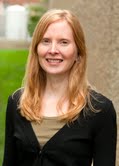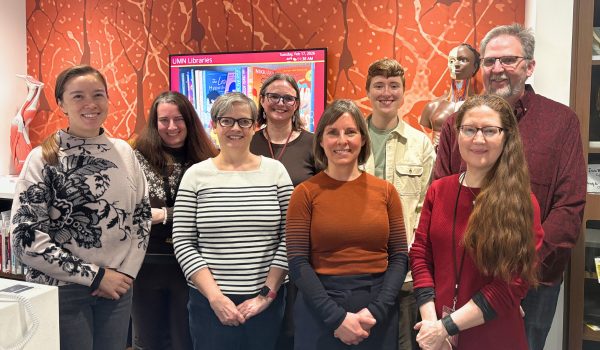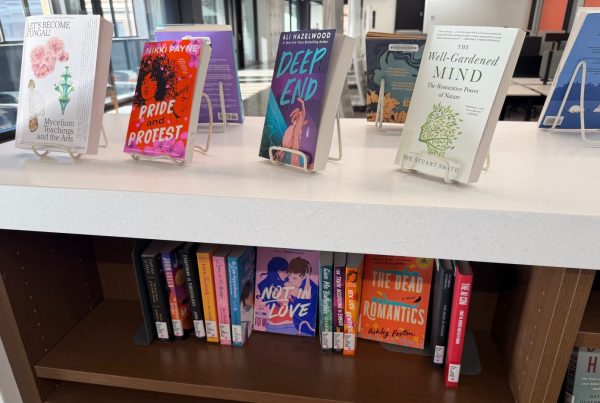By Erinn Aspinall
With so much information at our fingertips, finding too much information can be just as problematic as not finding enough.
Add to this the issue of knowing where to start searching and understanding what information is actually good information, and suddenly finding the answer to a simple question becomes much more complicated.
A best kept secret
It might be a best kept secret, but many of your friends and colleagues do not tackle research questions on their own. Over the last year, the Health Sciences Libraries (HSL) — the Bio-Medical Library, Veterinary Medicine Library, and Wangensteen Historical Library — answered nearly 17,000 questions for their patrons as part of their Reference Services.
This includes 420 consultations, where our staff work one-on-one to help clients maximize search strategies and learn to use the many databases and resources offered through the Libraries. Library staff also completed more than 300 literature searches, including 29 in support of systematic reviews.
For librarian Judy Stanke, our Reference Services are one secret she does not want to keep.
“Not everyone knows that we offer searches of the literature free of charge to students, staff and faculty at the University of Minnesota in support of health sciences research,” she said. “While we are happy to provide instruction and consultations to help people do their own searches more effectively, we will also do a search of the literature and email search results.”
The information puzzle
Finding answers to questions asked by library patrons is like solving a puzzle. You have to translate the question into searchable terms, locate the right databases, analyze results, and refine your strategy to get to the answer. It is this complex information-gathering that Stanke has loved throughout her 35 year career.
“I enjoy being able to use my experience and familiarity with searching and indexing to find the needles in the haystack,” she said. “It requires a certain amount of persistence, curiosity, and maybe a little bit of obsessive-compulsiveness,” said Stanke.
Judy’s colleague, Amy Claussen, agrees. For Claussen, the most challenging searches are also the most interesting. She recalls one of her favorite searches that resulted from a faculty member who requested information on medical marijuana in the United States and Europe.
“This request was challenging because it involved non-health sciences, multi-disciplinary topics such as medical marijuana laws by state, studies on medical marijuana dispensaries, and its impact on crime, adolescent use, and other factors,” she said.
Impact of information
In the process of answering 17,000 questions a year, HSL staff have seen many positive outcomes from their work. Stanke’s behind-the-scenes research has been recognized in nearly 30 publications, where she has been listed as an author or has been acknowledged for her contributions to the article. These articles were published in journals such as the Journal of the American Geriatrics Society, Journal of Clinical Epidemiology, The Lancet, and Journal of General Internal Medicine.
Stanke’s work represents the broad contributions that she and her HSL colleagues have made to the research that is conducted at the University of Minnesota Academic Health Center.
A personal thanks from a researcher, patient, or a caregiver is also a common occurrence at the Health Sciences Libraries. Claussen was recently able to assist Doctor of Nursing Practice student, Heather Brook, for her research on the the Seizure Smart Schools Initiative. This initiative aims at improving awareness about epilepsy within the school system. After their meeting, Claussen received this note of thanks from Brook:
“I just wanted to thank you again for meeting with me today. It was very helpful to guide me on how I approach the rest of my literature search, and I have many great articles now to start with.”
Brook’s thank you illustrates the importance that Libraries staff members place on helping library patrons find information, as well as teaching them how to effectively and efficiently use library resources so they can become independent researchers.
An expanding Reference Service: Systematic Reviews
Reference support for article research and clinical care is provided by the Health Science Libraries’ Reference Services, though all questions — big or small — are welcomed. The Reference Services offered by staff at the Bio-Medical Library, Veterinary Medicine Library, and Wangensteen Historical Library allow individuals to request assistance in-person, by email, or by phone. The Bio-Medical Library also provides a chat service as an option for contacting library staff.
With the increasing number of requests for systematic reviews – literature reviews focused on a research question that tries to identify and select all high quality research evidence relevant to that question – a new service is in development at the Bio-Medical Library. In 2014, the new Systematic Review Service will be formally launched to support this growing need.
For more information
Bio-Medical Library Reference Services (medref@umn.edu, 612-626-3260, chat)
Veterinary Medicine Library Reference Services (vetmed@umn.edu, 612-624-4281)
Wangensteen Historical Library Reference Services (wanghist@umn.edu, 612-626-6881)






